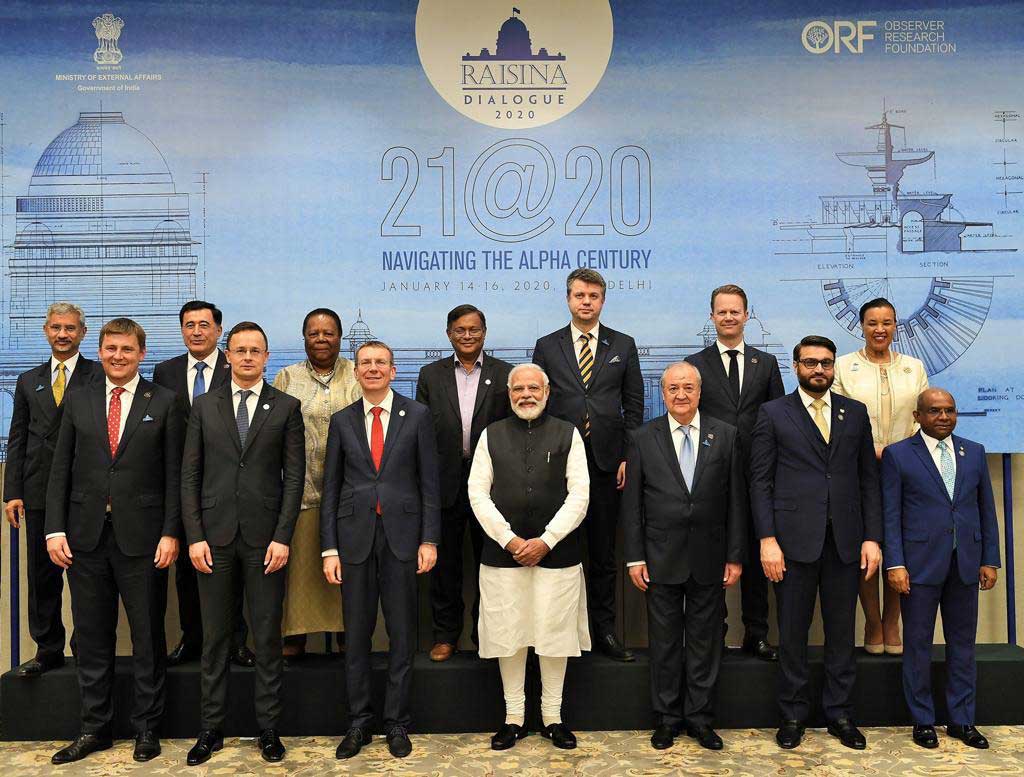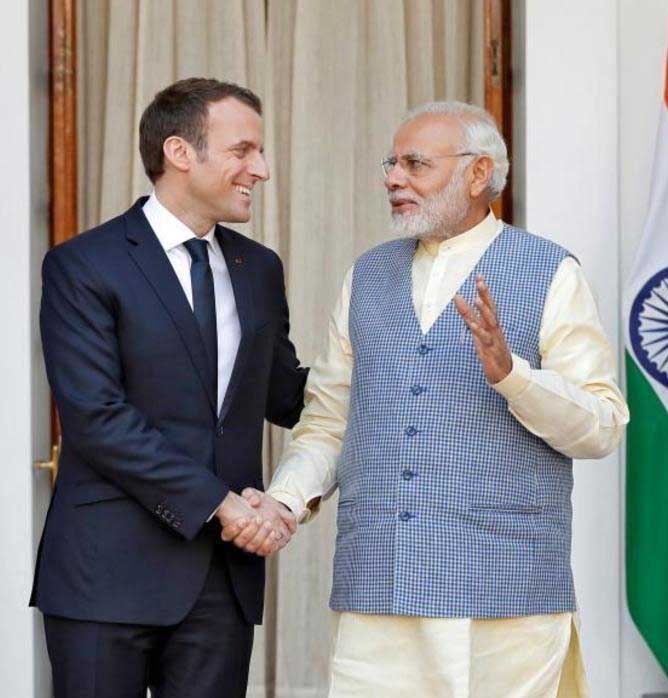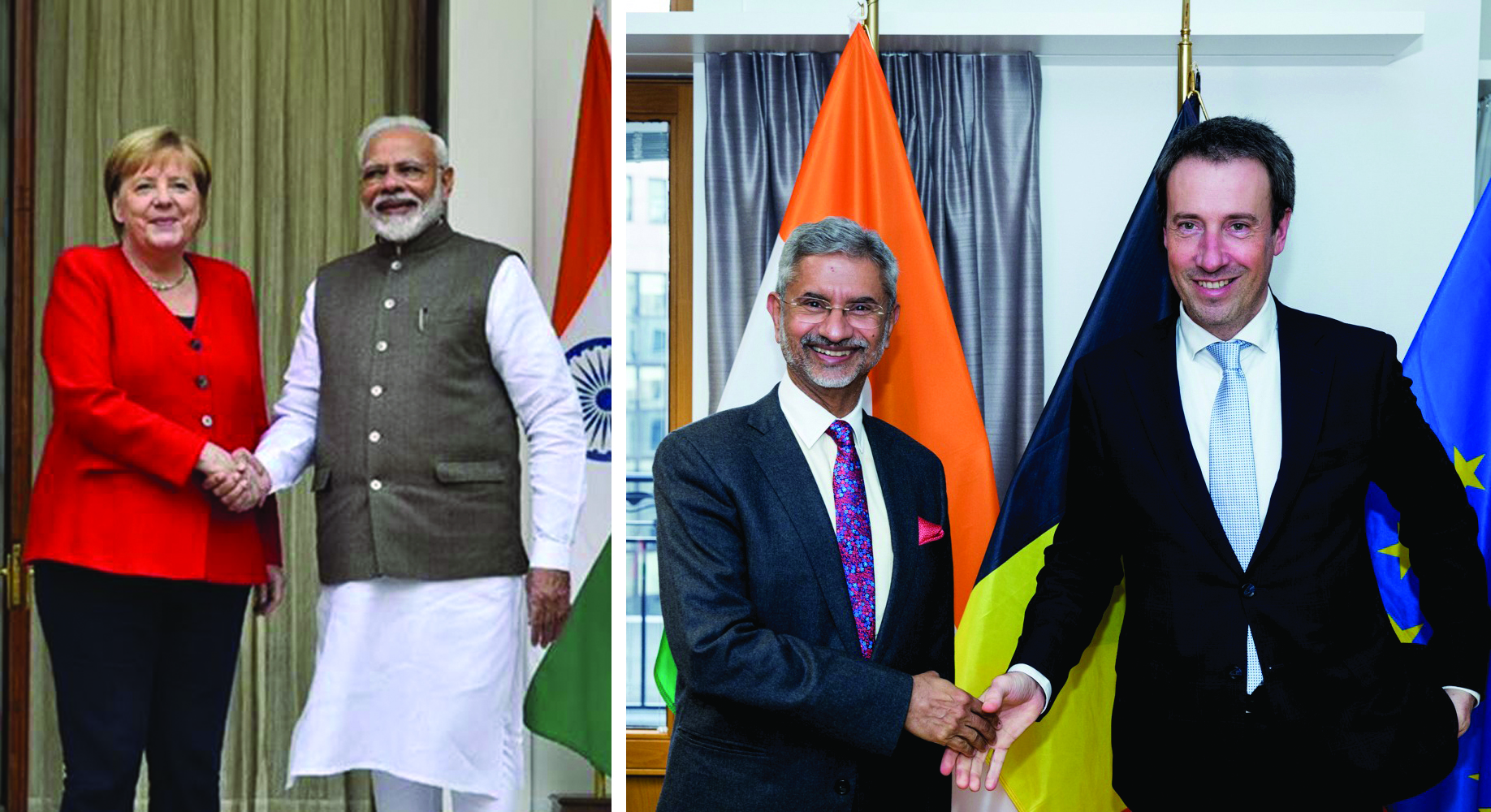
India-European Union (EU) close ties were reflected in a statement made by EU Foreign Policy chief Joseph Barell at Raisina Dialogue, 2020 which was held in New Delhi recently. Barell remarked that his preference to attend a summit in India than that being in Davos, Switzerland highlights the fact that India and EU must become more strategic given the importance of Indo-Pacific region.
He stated that the multilateral rules-based system was under ‘siege’ by US-China rivalry, and is providing an opportune moment for India and EU to work together in ensuring the survival of World Trade Organisation (WTO). In other words, India is important for EU in the Indo-Pacific region. EU needs India to offset Sino-American bipolarity in WTO.
Taking stock of India-EU relations, both strategic partners have worked together and continue to provide key deliverables in the areas of security, terrorism, policing, digital connectivity and climate change. India was enabled to get support of her European partners France and Poland in designating Jaish-e-Mohammad’s (JeM’s) Masood Azhar deemed as a terrorist under the United Nations Security Council Resolution 1267.
However, India-EU ties have faltered in moving forward on Bilateral Trade and Investment Agreement (BTIA) that faced several roadblocks since the start of its negotiations in 2009. While the EU was India’s first trading partner with 14 per cent of its total trade in goods in 2017, India was EU’s ninth largest trading partner accounting for only 2.2 per cent. Considering the size of the two economies, these figures fall short of the potential of two-way trade between the EU and India. The EU and India need to pursue a proactive approach to enhance their trade and investment relations.
Despite international outcry over the abrogation of Article 370 and the resultant internet clampdown in Kashmir, India accepted the request of the delegation of European Parliamentarians to visit Jammu and Kashmir. External Affairs Minister Dr Subrahmanyam Jaishankar in his trip to Brussels in February 2020 acknowledged that though there are challenges ahead for Kashmir, he keenly opined that Kashmir is moving in the right direction and is in the process of being more aligned with rest of India.

His government was investing heavily in developmental projects including the electrification of 330,000 homes and increasing pension and benefits coverage from 62 to 80 per cent of the population in the state-turned Union Territory. Seven medical colleges are in process of being set up, and three frozen hydroelectric projects have been unfrozen.
India has also taken note of the resolutions passed by European Parliament on the Citizenship Amendment Act (CAA), 2019. Foreign Minister Jaishankar insisted that CAA law had been misunderstood. The CAA law eases citizenship rules for religious minorities such as Hindus and Christians from Muslim-majority Bangladesh, Pakistan and Afghanistan. He compared the CAA rules to immigration and refugee resettlement policies across Europe pointing out that many EU countries also use national or cultural criteria.
Without mentioning Pakistan by name, he said some of India’s neighbours have Islam as a state religion, “and there are persecuted religious minorities who came to India because many of them find people have the same faith.” Dr Jaishankar said India’s new law would reduce statelessness, and pointed to the fierce debates that Europe has also had around immigrations and the “political changes” that have caused.
The United Kingdom (UK) left European Union on January 31, 2020. Brexit has caused a lot of anxiety in India as well with New Delhi asking itself about the shape of its future ties with London and the coherence of the EU. UK is ranked 17th in the list of India’s top 25 trading partners with India’s merchandise trade with the UK in 2017-18 estimated at US$14.5 billion with an additional US$7 billion trade in services. India enjoys a favourable balance of trade with UK.

When it comes to investments, UK is ranked as the fourth largest inward investor in India, after Mauritius, Singapore and Japan with a cumulative equity investment of US$26 billion since April 2000 accounting for around six per cent of all foreign direct investment into India. India also is a major investor in the UK (4th largest). Around 800 Indian companies with total consolidated revenue of 47.5 billion pounds have created over 105,000 jobs in the UK. The technology and telecom sector account for 31 per cent of these revenues with the pharmaceuticals and chemical sector accounting for 24 per cent.
Brexit will not only impact UK’s trade and investments with the EU but also its other trading and investment partners. Indian companies, many of which have invested heavily in the UK, are likely to be quite severely impacted by a no-deal Brexit particularly the companies that use the UK as a gateway to the European Union and Europe. Even companies that do not have a significant exposure to the EU will feel the impact as a no-deal Brexit will lead to a perceptible economic downturn in the UK. Major investors like the TATA group are already hedging their bets and exploring alternatives.

UK has clearly identified India as a major partner, particularly in the post-Brexit era. The focus on India by successive British Prime Ministers and other key ministers is a testimony to the value attached to India as a major trading and investment partner. With the expiry of the Bilateral Investment Treaty in March 2017 and the absence of a Free Trade Treaty, the imperative to conclude an India-UK FTA is apparent particularly after Brexit. Both sides at the highest political level have committed themselves to conclude an FTA as soon as possible.
In the first tenure Prime Minister Narendra Modi visited Western Europe more often than his predecessor. With Paris, New Delhi has renegotiated Rafale deal to purchase 36 aircrafts. Germany’s Inter-Governmental Consultative (IGC) format of dealing with India has enabled the deepening of cooperation in traditional sectors such as transport, skill development, and energy, and explores possibilities for cooperation in newer areas like green urban mobility and Artificial Intelligence (AI).
Looking at the West, India needs to ‘Act East’ in Europe. The time has come for India to seize the opportunity and tap the potentialities in terms of providing connectivity to Central and Eastern Europe (CEE), given that China’s political influence through 16+1framework has caused differences within member states of CEE in the region.
-The author is a researcher at Manohar Parrikar Institute for Defence Studies and Analyses. Views expressed are of the author and do not necessarily reflect the views of the MPIDSA or of the Government of India








